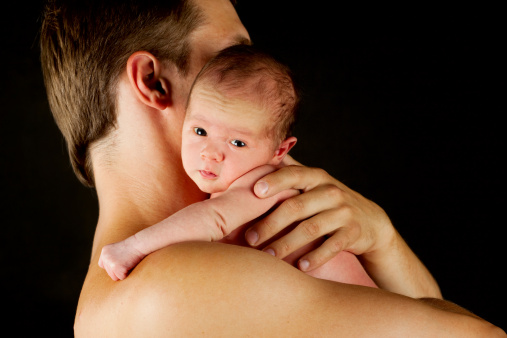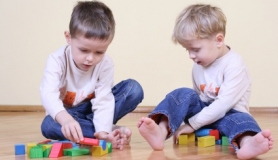In all of this, my partner and I struggled and I came to resent him for his apparent lack of support. He became distant, angry and we were slowly crumbling under the weight of our respective issues. It wasn’t until one particularly turbulent argument one evening that the truth came pouring out.
After months of listening to my complaints, watching me cry, attempting to be sympathetic and then quickly becoming agitated when my woes couldn’t quickly be fixed or, in all honesty, just put to the back of my mind he realised for himself why he wasn’t as emotionally available as I had needed and why he just hadn’t been able to talk about our daughter’s birth. It’s fair to say that my feelings were indeed affecting day to day life, but something more was going on with him and I feel saddened to this day that I didn’t notice it sooner.
Birth trauma in men is a very real problem. With increasing interventions and the knock on rise in c-sections and emergency situations, more and more men are witnessing traumatic births and are receiving little to no support both during and after the event. Many report symptoms similar to post-partum depression, flashbacks and even full blown PTSD. One father, Darren, of Poole, hasn’t worked for the past 7 years after witnessing his wife’s emergency c-section. “For the first three years, my flashbacks were off the scale,” he said. “Suddenly, I’d be able to smell the hospital and the whole room would disappear and I’d be back in that theatre with my wife. I just cried from morning until night and I became agoraphobic. I still don’t work now and that was seven years ago.”
All of the events surrounding birth, including the lead-up, the birth itself and the aftermath, are focussed almost exclusively upon mother and baby. With the NHS suffering major budgetary constraints, staffing issues and an incredibly poor understanding of natural birth, even they aren’t receiving the kind of treatment they deserve. So it should come as no surprise that fathers are barely given any consideration at all. But their experiences are often the most lucid; they take in everything, minus any of the pain, hormonal changes or even drugs that are involved in the mother’s experience. They watch, they hope and they trust. But they also see, feel powerless and they worry. From the simple worries of the pained look on their beloved partner’s face to the mounting anxiety as the midwives summon a consultant and the full blown shock as they watch their partner, lay on an operating theatre table – cut wide open.
Or, like my own partner’s experience, it is watching your loved one birth a baby with limited assistance as the only health professional in the room turns grey and quivers and your baby is born looking purple, not breathing… not moving. It’s that split second when you think your baby has died and life will never be the same again. And then baby cries and it’s all go, go, go and everything’s fine. But that moment still lingers in your mind and it haunts you. The what-ifs, because for just one second it was real and it happened and that feeling never goes away.
And what kind of support and assistance is offered to men in the aftermath of even the most obviously traumatic births? Considering women are only offered the standard midwife check- ups, 6-8 week doctor check-up and then sent on their merry way long before many PPD or PTSD cases have time to fully present themselves, perhaps the nothing that men are given should come as no surprise. But, in much the same way that an emotionally struggling mother cannot be the kind of parent her child deserves – fathers also find themselves struggling with family life, often without fully understanding why.
And whilst some of us are lucky enough to find each other again, too many families have fallen apart under the strain of birth trauma. Being alive and healthy isn’t good enough anymore. A happy birth experience is critical to the kind of parents we become and the kinds of people our children grow into. It’s the fabric of society, the cornerstone of community and the crux of our individual health and emotional wellness. Now, we find ourselves truly paying the price for endless red-tape intervention and critical funding cuts to the most crucial health service the NHS provides. The damage to society is exponential in the crusade to simply “keep mother and baby alive”.







